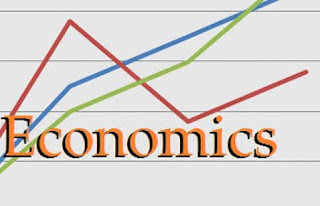WHY ECONOMICS IS A SCIENCE?
Economics is called a science subject because it uses scientific measures to explain, observed phenomena and predict the outcome of future events. This scientific method of observation is generally referred to as inductive method.

Economics, like all other science subjects is also called a science as a result of the following reasons:
What is Science?
According to Oxford Advanced Learner’s Dictionary of Current English by A.S. Hornby, “Science is knowledge arrange in an orderly manner, especially knowledge obtained by observation and testing of facts and the pursuit of such knowledge.”
Like all other science subjects, Economics is a body of knowledge arranged in an orderly manner and this knowledge is obtained by observing human beings, their behaviours and their somal environment.
The facts obtained from this observation are tested in order to arrive at certain laws like: Laws of demand and supply, law of diminishing returns, law of marginal utility, etc. These laws have been empirically tested within the society and experimented on the production, distribution and consumption of goods and services.
Economics therefore, possessses those attributes of science, like investigation, observation, arrangement, classification and inter retation of facts, empirical testing of facts, the eductive and inductive methods of theories used to formulate laws and finally, establishing principles, propositions, generalizations, theories and laws used for the analysis, prediction and forecasting of economic problems and soiutions.
It is as a result of the above reasons that students of Economics of many universities graduate with Bachelor of Science (B.Bs.) degree and not Bachelor of Arts (BA) degree.
The above evidences serve as empirical proof that Economics like other subjects that possess similar qualities is a science subject. However, Economics is not a natural or pure or physical science, but a social science.
Differences Between Economics and Pure Science
Economics is different from other science subjects like physics and chemistry. One of their areas of differences is that while Economics belongs to the group called social sciences, Physics and Chemistry belong to the area of physical / natural or pure sciences.
Another area of difference is that Economics as a social science studies mainly human beings and their behaviours while pure sciences like Physics and Chemistry study mainly inanimate objects.
Unlike the natural or physical sciences that can isolate their objects of study in order to arrive at a conclusion, Economics which is a social science, the objects of study can never be isolated. When an Economist is studying human beings and their behaviours, he is at the same time studying himself and his behaviours.
Economics is also different from natural or physical sciences like Physics and Chemistry because, it does not have a defined laboratory and uses no specific apparatuses. Human society as a whole serves as laboratory for Economics.
Another area of difference between Economics and other science subjects like Physics and Chemistry is that experiments performed in Economics are not subjected to effective control as is done in Physics and Chemistry.
Furthermore the objects of study of physical or natural sciences are rigid and not flexible in their reactions like human behaviours that constitute the objects of stud of Economics which are flexible and vary with situations.
Economics, unlike the pure science subjects, does not arrive at definite conclusions because human beings and their behaviours change like weather and not consistent. As a result of this inconsistency in human beings who have free will and so cannot be subjected to rigid unbending laws.
Economists coined the Latin phrase – “ceteris paribus (meaning: other things being equal)” to counteract the uncertainty of their laws and concIusions.
Finall, while the natural sciences use positive statements which state “what is” and can be refuted by contradictory evidence, Economics uses normative statement which states “what ought to be” and cannot be refuted by contradictory evidence.